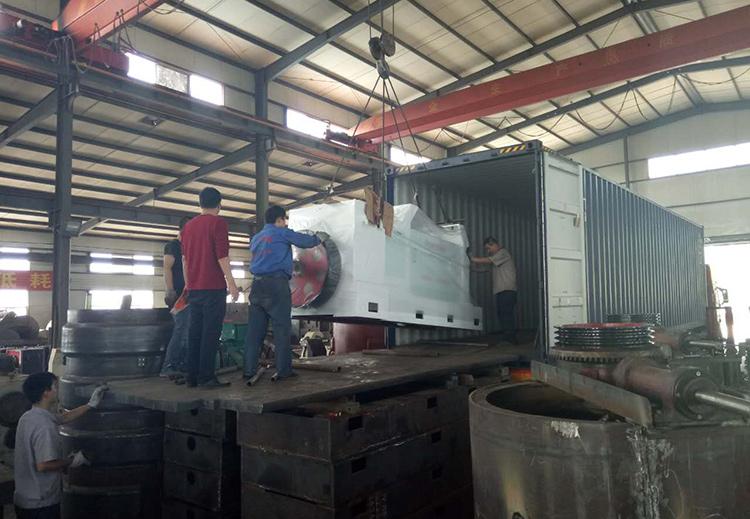Nov . 16, 2024 15:53 Back to list
oil centrifuge
The Role of Oil Centrifuges in Enhancing Efficiency and Sustainability in the Oil Industry
In the dynamic world of the oil industry, where efficiency and sustainability are paramount, the use of oil centrifuges has emerged as a game-changing technology. This equipment plays a critical role in the separation of different components of crude oil, significantly enhancing the operational processes involved in oil production and refining. In this article, we will explore the fundamental principles behind oil centrifuges, their various applications, and their contributions to a more sustainable oil industry.
Understanding Oil Centrifuges
Oil centrifuges operate on the principle of centrifugal force, which is generated when a substance is spun at high speeds. In the context of oil processing, the centrifuge separates the crude oil into various components based on their density. Essentially, the heavier particles, such as water, sediment, and other impurities, are forced outward by the centrifugal force, while the lighter oil components remain closer to the center. This process allows for efficient separation, purification, and recovery of the valuable oil while minimizing waste and other environmentally harmful by-products.
Key Applications of Oil Centrifuges
1. Pre-Treatment of Crude Oil One of the primary applications of oil centrifuges is in the pre-treatment stage of crude oil. Before crude oil is processed in refineries, it contains various impurities, including water, sand, and other organic materials. By using centrifuges, operators can effectively remove these impurities, leading to cleaner, higher-quality crude oil feedstock. This not only enhances the efficiency of downstream processes but also reduces the wear and tear on refinery equipment.
2. Produced Water Treatment In oil extraction, a significant volume of produced water is generated, which contains contaminants and hydrocarbons. Oil centrifuges are instrumental in separating oil from water, allowing for the recovery of valuable hydrocarbon products while treating the wastewater effectively. This process reduces water disposal costs and minimizes the environmental impact of oil extraction operations.
oil centrifuge

3. Optimize Refinery Operations In refineries, oil centrifuges help optimize processing operations by ensuring that the feedstock is as pure as possible. By removing unwanted residual elements, centrifuges allow refineries to operate more efficiently, increasing throughput and reducing energy consumption. This ultimately translates into lower operational costs and a reduced carbon footprint.
4. Enhancing Biodiesel Production Centrifuges are also utilized in the production of biodiesel. The transesterification process in biodiesel production generates glycerol and other by-products. Centrifuges separate these components, ensuring a high-quality biodiesel product that meets market standards. This application of oil centrifuges supports the transition towards renewable energy, fostering a more sustainable future.
Environmental and Economic Benefits
The implementation of oil centrifuges not only streamlines operations but also contributes significantly to environmental sustainability. By effectively separating unwanted materials, centrifuges reduce the volume of waste produced during oil extraction and refining. This minimizes the likelihood of spills and contamination, protecting delicate ecosystems and reducing regulatory penalties for oil companies.
Economically, the use of centrifuges translates to cost savings for operators. The efficient recovery of hydrocarbons and reduction of waste disposal costs enhance the profitability of oil operations. Furthermore, the improved product quality resulting from advanced separation processes allows companies to capture higher market prices for their products.
Conclusion
As the oil industry continues to face growing environmental challenges and market pressures, the adoption of innovative technologies like oil centrifuges is vital. These devices not only enhance operational efficiency but also play a crucial role in promoting sustainability. By facilitating the effective separation of oil from impurities and supporting the recovery of valuable resources, oil centrifuges represent a significant step forward in the pursuit of a more responsible and sustainable oil industry. As technology progresses and the focus on environmental stewardship increases, the role of oil centrifuges is likely to expand, solidifying their importance in the future of oil production and refining.
-
Oil Processing Equipment - High-Efficiency Flaking Machine
NewsJul.25,2025
-
High-Efficiency Peanut Oil Refined Machine for Quality Oil Production Leading Exporters & Companies
NewsJul.08,2025
-
High Efficiency Sunflower Seed Oil Press – Leading Cooking Oil Press Machine Factories & Suppliers
NewsJul.08,2025
-
High-Efficiency Soybean Oil Press Machine – Leading Exporters & Reliable Companies
NewsJul.07,2025
-
High-Efficiency Seed to Oil Extractor – Reliable Extraction Machinery for Your Business
NewsJul.07,2025
-
High-Quality Pressing Screw of Oil Expeller for Efficient Oil Extraction Leading Exporters & Manufacturers
NewsJul.06,2025
